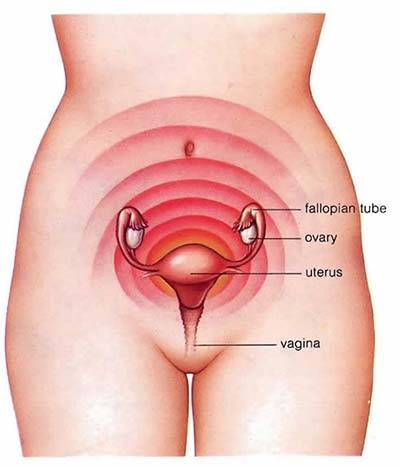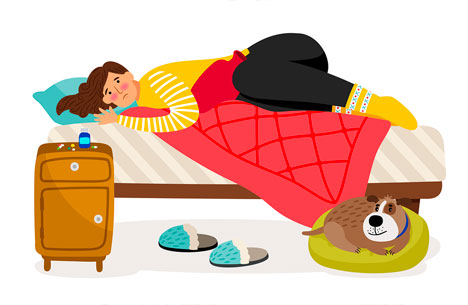Untreated dysmenorrhea can cause you to miss work and or school
Gynecologist Dr. Mariz of Manhattan Specialty Care OBGYN department offer a comprehensive care in NYC for women of all ages. At our OBGYN clinic, we provide a full range of gynecology services, from annual check-ups and routine pap smears to treatment of Menstrual Cramps and gyn procedures, surgeries performed in our office or in the hospital. Our state of the art gynecology NYC facility equipped with a latest obgyn equipment.
Dysmenorrhea
 Many women suffer from some form of dysmenorrhea, another name for pain that happens just before or during your menstrual period. The main difference is the severity of the pain. There are two kind of menstrual pain: primary and secondary.
Many women suffer from some form of dysmenorrhea, another name for pain that happens just before or during your menstrual period. The main difference is the severity of the pain. There are two kind of menstrual pain: primary and secondary.
- Primary menstrual pain is the type that is most common. It’s the discomfort that accompanies menstruation. Primary dysmenorrhea usually begins just before you actually start bleeding. You may have mild cramps, nausea, vomiting and diarrhea during periods. Pain starts in your lower back, abdomen and possibly down your thighs. It usually lasts from 12 to 72 hours and usually lessens as you age.
- Secondary menstrual pain is caused by some other disorder. It lasts much longer than the usual cycle and isn’t typically associated with vomiting, diarrhea or nausea. Some of the conditions that lead to secondary dysmenorrhea might be endometriosis, uterine fibroids, polyps, or adenomyosis.
Both primary and secondary dysmenorrhea comes with significant symptoms. For example, you may have:
- Abdominal pain that can at times be debilitating, potentially making you miss work or school
- Pain that courses throughout your lower body
- Pressure on your abdomen
- Headaches
- Bloating
- Constipation or diarrhea
Dysmenorrhea should always be evaluated with a thorough consultation and examination by a physician for an accurate diagnosis and treatment plan as it may be a symptom or sign of a serious illness or condition.
Risk Factors
Again, many women experience some level of cramps during their periods. You’re at a higher level of risk, however, if you:
- Smoke cigarettes
- Are under the age of 30
- Start puberty before the age of 11
- Have heavy uterine bleeding (HUB)
- Have irregular periods or abnormal uterine bleeding (AUB)
- Have never had a baby
Menstrual Cramps

Your uterus contracts during your monthly cycle. If it contracts too hard or if you have some abnormality like fibroids or polyps inside your uterus, it cuts off the blood supply to the muscles that surround it and can cause pain. Painful periods can disrupt your life and cause you to miss work, school, or sporting events. Menstrual cramps prevent you from doing other normal activities.
Mild menstrual cramps are normal during the time that your uterus is contracting and dispelling the blood and unfertilized eggs during ovulation. Painful periods tend to get more painful as you get older.
The cramps you feel during your period are caused by the release of hormones like prostoglandins, a hormonal chemical that appears in your body when bleeding starts. Blood clots are stimulated by prostaglandin and cause blood vessel contractions that push the clots out and allow the blood vessels to relax.
How to Stop or Reduce Period Cramps
You can take steps to relieve mild menstrual cramps with some over-the-counter remedies and lifestyle changes, such as:
- Warm heating pad on your lower abdomen or bacl
- Over-the-counter Ibuprofen if you don’t have an allergy or illness that would make taking it unsafe
- Massage of your lower abdomen or back
- Rest
- Stop smoking
- Exercise regularly
Up to 50% of women have dysmenorrhea
When natural treatments and over-the-counter NSAIDs don’t work to relieve your suffering, you may need to be seen by your gynecologist NYC. Dysmenorrhea should be evaluated with a thorough consultation and examination by a gynecologist for an accurate diagnosis and treatment plan as it may be a symptom or sign of a serious illness or condition.
Potential Tests
If your Manhattan gynecologist, Dr. Mariz, can’t find any infection or growths after doing a pelvic exam, he may want to do tests, such as:
- An ultrasound, a safe imaging technique that uses soundwaves to create a picture of the female pelvis and helps identify things like fibroids, polyps, or other problems that can be causing pain
- Other imaging tests also are available to find the cause of your dysmenorrhea, such as an MRI or CT scan.
- Hysteroscopy, a quick procedure where the gynecologist will place a small camera into the uterus and see problems that may be causing your pain, along with fixing them at the same time
When to Talk to Your Gynecologist
Any time your cramps affect your life and are not easily solved by over-the-counter treatments, like a heating pad or Ibuprofen, aren’t working.
When Cramps May Be Life-Threatening
Call 911 if you use tampons during your period and, in addition to your cramps, you:
- Develop a rash that mimics a sunburn
- Have a fever higher than 102 degrees Fahrenheit
- Get diarrhea and vomiting
- Feel dizzy enough to faint
- Faint
You could be experiencing a life-threatening condition.
Important Reminder: This information is only intended to provide Gynecology guidance, not a definitive medical advice. Please consult an OBGYN specialist doctor about your specific condition. Only a trained, experienced gynecologist can determine an accurate diagnosis and proper treatment.
Have questions about Menstrual Cramps or Dysmenorrhea? Schedule an appointment with Top OBGYN specialist in Manhattan, Dr. Fernando Mariz, today.
Updated on Jun 23, 2020 by Dr. Fernando Mariz (Gynecologist), Manhattan Women’s Health and Wellness
Best-in-class
New York Gynecology Clinic
Manhattan Specialty Care in the Press

Call now to make an appointment with our highly rated Manhattan Gynecology doctors regarding your health. We look forward to seeing you!
book online now
(212) 378-9987
New York City Locations:
Manhattan Women's Health & Wellness (Upper East Side)
983 Park Ave, Ste 1D17
New York, NY 10028
(212) 389-1904
Manhattan Women's Health & Wellness (Midtown)
51 East 25th St, Ste 451
New York, NY 10010
(212) 677-7654
Manhattan Women's Health & Wellness (Union Square)
55 W 17th St, Ste 104
New York, NY 10011
(212) 378-9985